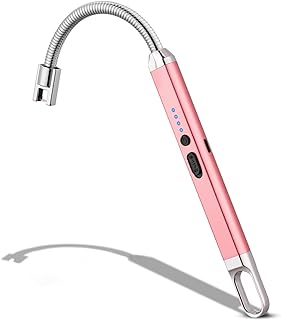Lighters and the Law: Regulations and Restrictions
The regulation of lighters varies widely by country and region, influenced by factors like safety concerns, environmental impact, and potential for misuse. Here's an overview of common regulations and restrictions:
General Regulations:
* Age restrictions: Many countries prohibit the sale of lighters to minors, usually around 18 years old. This is to prevent children from accessing lighters and potentially starting fires.
* Safety standards: Lighters must adhere to specific safety standards, including child-resistant mechanisms and flame safety features. This helps prevent accidental fires and injuries.
* Labeling requirements: Lighters may be required to have specific warning labels about their potential dangers and safety guidelines.
* Restrictions on public use: Some areas may restrict or prohibit the use of lighters in public places due to fire hazards or public health concerns (e.g., smoking bans).
Restrictions and Bans:
* Disposable lighters: Some countries have introduced bans or restrictions on the sale or use of disposable lighters due to their environmental impact and potential for misuse.
* Refillable lighters: While less common, some regions might have restrictions on refillable lighters based on concerns about safety, misuse, or environmental factors.
* Specific types of lighters: Some countries may restrict or ban specific types of lighters, such as those designed for certain purposes (e.g., gas lighters for industrial use) or those with specific features (e.g., lighters with embedded tools).
* Import/export restrictions: Certain countries may impose restrictions on the import or export of lighters, especially for specific types or quantities.
Examples of Regulations:
* United States: The Consumer Product Safety Commission (CPSC) sets safety standards for lighters, requiring child-resistant mechanisms and other features. Individual states may have additional regulations.
* European Union: The EU has implemented regulations on the safety of lighters, including requirements for child-resistant mechanisms and labeling.
* Australia: Australia has banned the sale of disposable lighters and implements strict regulations on the sale and use of other types of lighters.
* Canada: Canada has similar regulations to the US regarding safety standards and age restrictions for lighters.
Important Considerations:
* Check local laws: Regulations on lighters can vary greatly. It's important to check local laws and regulations before purchasing, possessing, or using a lighter.
* Safety precautions: Regardless of regulations, it's essential to use lighters responsibly and follow safety precautions to prevent fires and injuries.
Resources:
* Your local government website: Check your local government website for information on specific regulations in your area.
* Consumer product safety agencies: Contact your national consumer product safety agency for information on safety standards and regulations.
* Fire safety organizations: Fire safety organizations can provide information about responsible lighter use and fire prevention tips.
By understanding the regulations and restrictions, you can ensure you're using lighters safely and legally.


